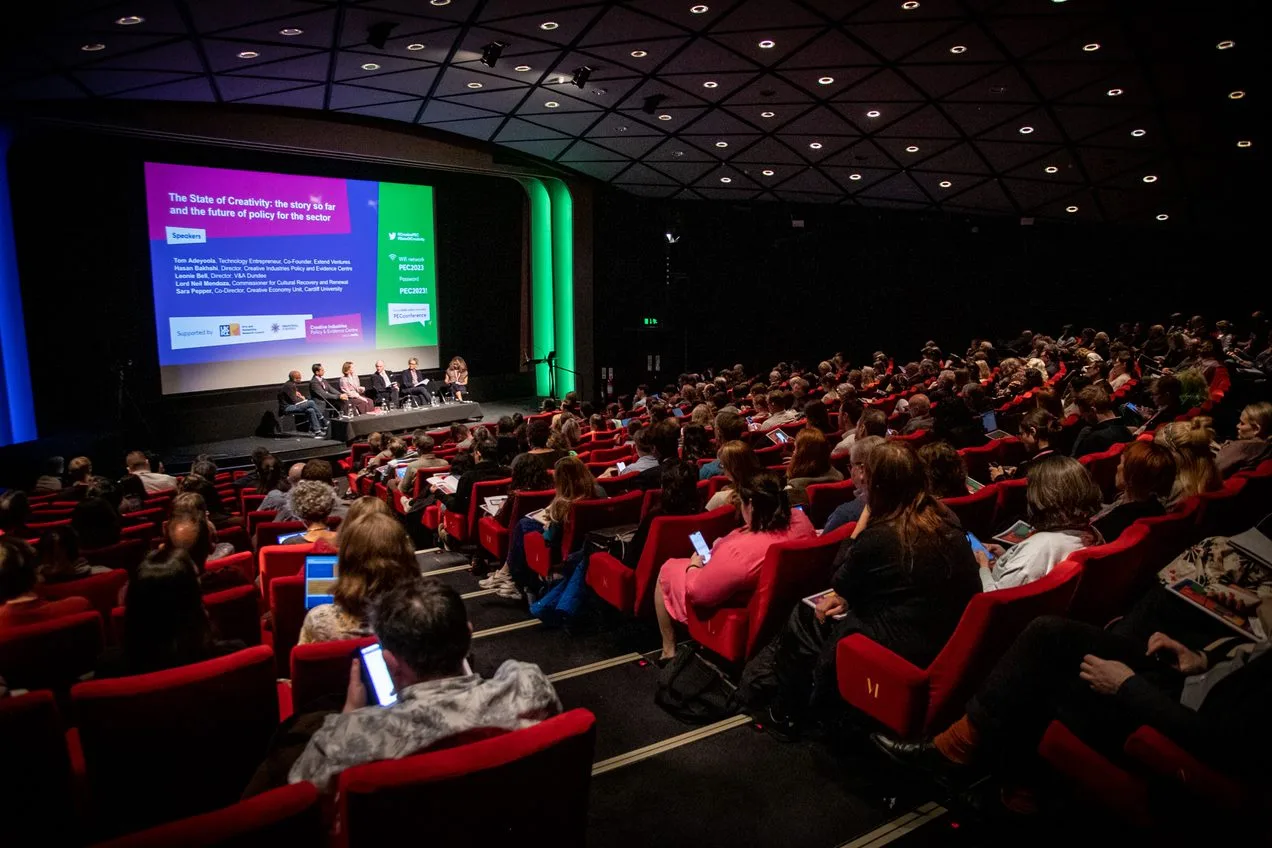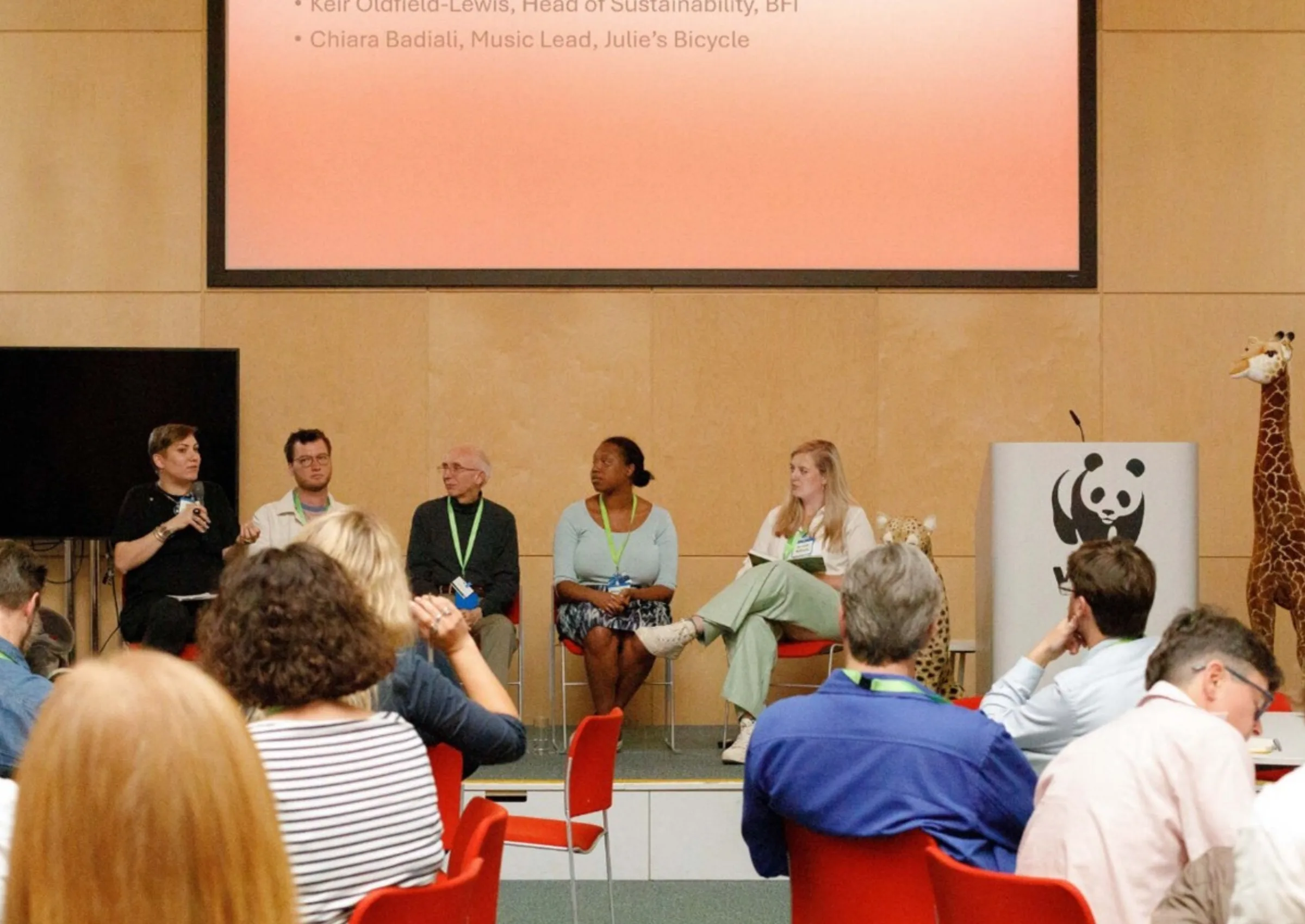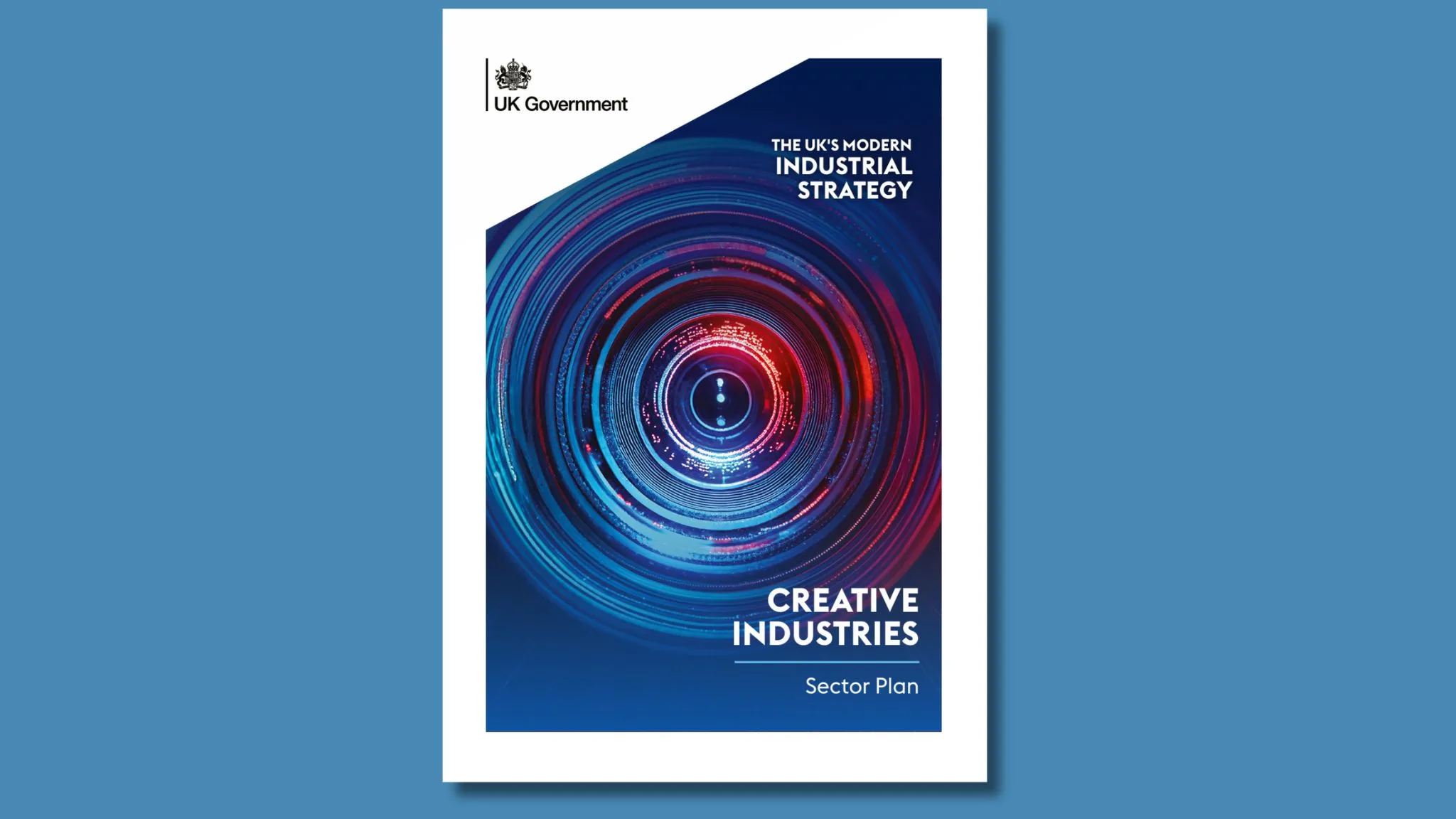On April 4th the government confirmed its plans to privatise Channel 4, the UK’s publicly owned not-for-profit public service broadcaster (PSB).
Announcing the decision via Twitter, the Culture Secretary Nadine Dorries said selling the broadcaster was necessary because “government ownership is holding Channel 4 back from competing against streaming giants like Netflix and Amazon.”
Although no clear frontrunner has emerged as a potential buyer, the government expects to raise upwards of £1bn from selling Channel 4 with the proceeds reinvested as a “creative dividend” for the UK’s media production sector. These proposals are set to be formalised in a White Paper later this year, possibly as part of the government’s long-anticipated strategic review on the future of UK broadcasting policy, with any changes in legislation requiring final approval from both the House of Commons and the House of Lords.
Last year, the Creative Industries Policy & Evidence Centre submitted its analysis on the potential impact of a change in Channel 4’s ownership to both the government and House of Lords committees. The submission argued that privatisation would risk reducing the range and choice of content available for UK audiences, threaten Channel 4’s substantial investment in the UK’s world-leading independent production sector, and weaken the public value created by the UK’s wider (PSB) ecology.
As Parliament and the public consider the government’s plans, here are four key findings which we hope will help inform an evidence-led debate on the future of Channel 4.
1. A privately-owned Channel 4 is unlikely to fulfil its unique public service remit
If Channel 4 is privatised, the requirement to create profits for its new shareholders would limit the funding available to produce distinctive, innovative public service content consistent with its distinct mission. As the broadcasting campaign group VLV has argued, private ownership would entail a greater focus on producing more commercially appealing content to attract larger advertising revenues, with a for-profit Channel 4 likely prioritising more homogenous programming for re-sale in international markets.
This could lead to a sharp decline in Channel 4 programming that represents UK life, further limiting the range and diversity of content available to UK audiences – especially because streaming giants like Netflix and Amazon rarely produce content that is made in and about the UK. In the case of younger audiences, Ofcom analysis indicates that 16-34s still distinguish PSBs as far more socially and culturally beneficially than the streaming services or YouTube, valuing PSBs for creating shared family experiences and unique content that accurately reflects and represents the UK.
In its original proposals for privatising Channel 4, the government suggested that it may seek to maintain Channel 4’s public service obligations as a pre-condition of any sale. Impartial news, education, serving minority audiences and investment in UK regional production have been central to Channel 4’s success as a PSB, but these commitments are unlikely to form an attractive commercial proposition for companies looking to purchase Channel 4’s platforms and brand.
A new owner would either seek to minimise its investment in these core public service areas to bolster more profitable content, or attempt to reduce the scale and scope of Channel 4’s current regulatory requirements. The further scaling back of essential public service requirements by a wholly private Channel 4 would severely weaken the benefits it creates for audiences and damage the collective public value generated by the UK’s PSB ecology.
2. Without Channel 4’s publisher-broadcaster status, investment in independent UK producers will fall sharply
As a ‘publisher-broadcaster’, Channel 4 commissions all its content from external producers. This unique structure, embedded in its corporate licence, has been pivotal to Channel 4’s role as a cultural and economic dynamo for the UK’s independent production sector – which is worth almost £3bn to the UK economy. In 2019 commissions from Channel 4 accounted for 10% of the total revenues of UK ‘indies’, equivalent to the UK sector revenues sourced from all ‘video on-demand’ companies combined.
Channel 4’s regulations also require that at least 35% of its commissioning spend goes to producers outside of London, further enhancing the diversity and creativity of its programming while increasing the opportunities for smaller independent producers to grow and compete in the UK market. In 2020 almost half of Channel 4’s spend on UK original content went to producers in the nations and regions, and Channel 4 commissions accounted for 14% of all out-of-London commissioning spend – more than ITV, Channel 5 and the combined spend of all other non-PSB UK channels.
Pact, the independent production trade body, estimates that the sector would lose £3.7bn over a decade if a private Channel 4 shifted primarily to an in-house production model, transferring value “away from British SMEs and into the hands of large profit driven corporations”. Channel 4’s economic contribution in the nations and regions would also shrink markedly if its publisher-broadcaster requirements were loosened. Analysis by EY projects that Channel 4’s ‘Gross Value Added’ (GVA) to economic activity would be reduced by £1bn over a ten-year period, leading to 1,200 fewer jobs outside of London than would be provided under the current model.
3. As a for-profit broadcaster, Channel 4’s economic and cultural contribution to the UK’s nations and regions would decline significantly
Under public ownership, Channel 4 has created enormous economic value for the creative industries and taxpayers throughout the UK. Analysis by EY estimates that, in 2019, Channel 4 created over 3,000 jobs and generated £274m of GVA in the nations and regions. Channel 4’s regional facilities in Leeds, Glasgow and Bristol have supported the growth of local producers in these areas, helping to ‘crowd in’ (as the BBC has also achieved) further investment in film, advertising and digital businesses.
While Channel 4 and all UK PSBs can still do more to rebalance the investment currently concentrated in London, privatisation would set Channel 4 on a reverse course, negating its ability to reinvest revenues in risk-taking creative enterprises across the nations and regions. During its talks with government, Channel 4 offered to generate £3bn more in GVA across the UK and invest in training 100,000 young people in the creative industries. If the government has rejected these plans, it will need to ensure that the UK public receives the same economic and industrial benefits from a privatised Channel 4.
4. Despite evolving audience habits and market pressures, Channel 4 is financially robust and firmly established in the online media landscape
Revenues from TV advertising shrank by 15% from 2019 to 2020, while competition with large international companies in popular genres, such as high-end drama, has caused rapid inflation in production costs. These market challenges are not unique to any one broadcaster, and a privatised Channel 4 would still face falling advertising income and rising costs. The need to create profits for shareholders would strain Channel 4’s finances further, markedly diminish the distinctiveness of its output through placing it in direct competition with SVoDs and international broadcasters.
Channel 4 under public ownership has demonstrated robust finances in recent years and made a strong start in establishing a sustainable, diversified revenue stream for an evolving media market. Between 2016 and 2020, Channel 4’s revenue from digital advertising almost doubled from 8% (£84m) to 17% (£161m) of total income, and its non-advertising share of income increased from 7% (£67m) to 9% (£84m). Far from being financially unsustainable, Channel 4 has established a strong financial foundation for the future – without costing the UK taxpayer a single penny.
Conclusion
The government claims that a change in Channel 4’s ownership would ensure the future success and growth of its historic contribution to UK broadcasting. However, its plans for privatisation have attracted significant criticism and opposition from the public, unions, industry bodies and MPs from all political parties.
The government must endeavour to take full consideration of the effects that privatisation will have on Channel 4’s economic, social and cultural contributions to the UK. This should include the views and evidence submitted as part of its public consultation, the findings of which have yet to be published. Crucially, any decision should be based on evidence of what can continue to create and sustain the public value of Channel 4 and the UK’s wider PSB ecology.
Thumbnail image credit: ThisisEngineering RAEng onUnsplash
Hero image credit: Frederic Köberl onUnsplash
Related Blogs
Insights from the Labour Party Conference 2025
Creative PEC Policy Adviser Emily Hopkins attended the Labour Party Conference in September 2025.
Association of South-East Asian Nations’ long-term view of the creative economy
John Newbigin examines the ASEAN approach to sustainability and the creative economy.
Take our Audience Survey
Take our quick survey and you might win a National Art Pass.
Culture, community resilience and climate change: becoming custodians of our planet
Reflecting on the relationship between climate change, cultural expressions and island states.
Cultural Industries at the Crossroads of Tourism and Development in the Maldives
Eduardo Saravia explores the significant opportunities – and risks – of relying on tourism.
When Data Hurts: What the Arts Can Learn from the BLS Firing
Douglas Noonan and Joanna Woronkowicz discuss the dangers of dismissing or discarding data that does…
Rewriting the Logic: Designing Responsible AI for the Creative Sector
As AI reshapes how culture is made and shared, Ve Dewey asks: Who gets to create? Whose voices are e…
Reflections from Creative Industries 2025: The Road to Sustainability
How can the creative industries drive meaningful environmental sustainability?
Creating value: the creative economy beyond culture by Marta Foresti
Marta Foresti explains the value of international cooperation as she becomes Chair of the GCEC.
Taking stock of the Creative Industries Sector Plan
We summarise some of the key sector-wide announcements from the Creative Industries Sector Plan.
Conversations between the Global North and South
Unsettling and reordering the creative economy
Why higher education matters to the arts, culture and heritage sectors
Professor Dave O’Brien, Professor of Cultural and Creative Industries at University of Manches…













